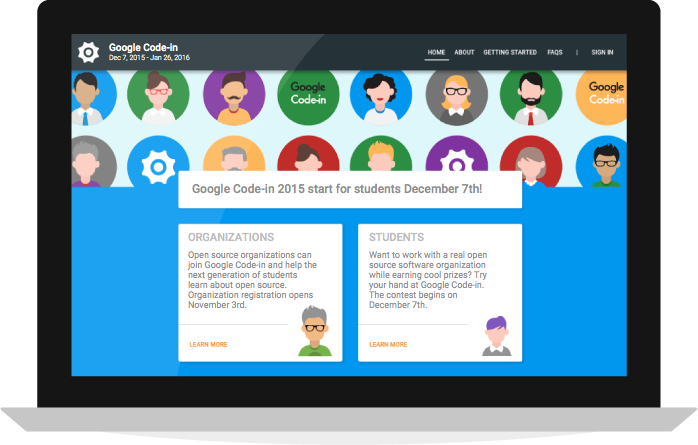
Google wants students to go beyond an Hour of Code. The company has announced the Google Code-in competition, a seven-week competition where students work on real software projects and get help from mentors. Students can browse from hundreds of tasks from 14 open-source organizations ranging from healthcare, desktop and portable computing, to game development, and can choose the one they find most interesting. Projects can include documentation, coding, training, research, quality assurance, user-interface, and outreach tasks.
Each task will have at least one mentor who will help students and review their work. In addition, students will have access to beginner tasks that can help them understand where to get started.
Google releases over-the-air updates
Google has announced its latest Android over-the-air update as part of the company’s monthly security release process. The latest update aims to address vulnerabilities in Nexus devices.
The most severe issue in this update includes a critical vulnerability that could allow enable more code execution through e-mail, Web browsing and MMS when users process media files. There have been no reports that these vulnerabilities have been exploited, and partners have already been notified and provided updates on these issues.
A full list of vulnerabilities is available here.
IBM Swift Sandbox lets coders try Swift easily
With Apple’s programming language Swift becoming open source earlier this month, IBM’s Swift developers decided to make IBM Swift Sandbox available to developers on developerWorks, which is IBM’s official developer program.
IBM Swift Sandbox is an interactive website that lets developers write in Swift code and execute it in a server environment, or on top of Linux. Each sandbox runs on IBM Cloud in a Docker container. The latest versions of both Swift and its library are available.
IBM engineer Patrick Bohrer wrote in a blog post that there are some things on the horizon for IBM Swift Sandbox, including scaling up to handle Swift-level “excitement,” and sharing snapshots and code to assist the Swift.org development community.
EFF wants to stop ‘cyber’ bills
The Electronic Frontier Foundation (EFF) wants to stop cybersecurity bills from getting passed. The organization has set up the Stop the “Cyber” Bills campaign to get more individuals on board. Currently, the organization is turning its efforts to the Cybersecurity Information Sharing Act (CISA), which it said would allow companies to spy on users and share their information with the NSA.
“The bills ignore reality: Experts can already share technical information to stop threats without sharing unrelated personal information. And some experts even say the bills may not help computer security,” the organization wrote on its website.
The EFF is asking individuals to ask representative Michael McCaul, chairman of the House Committee on Homeland Security, to fight for users privacy protections. According to the organization, congressional leadership and members of the Intelligence Committee are trying to pressure McCaul into removing privacy protections from the CISA’s final text.





